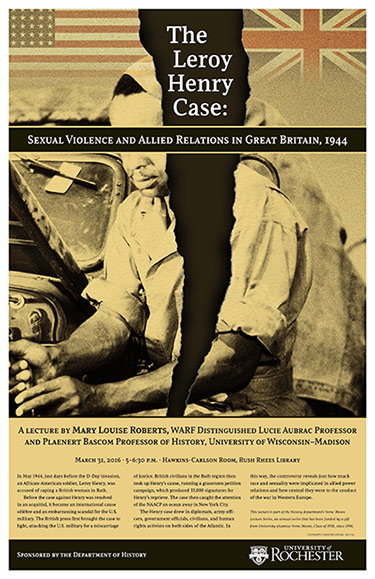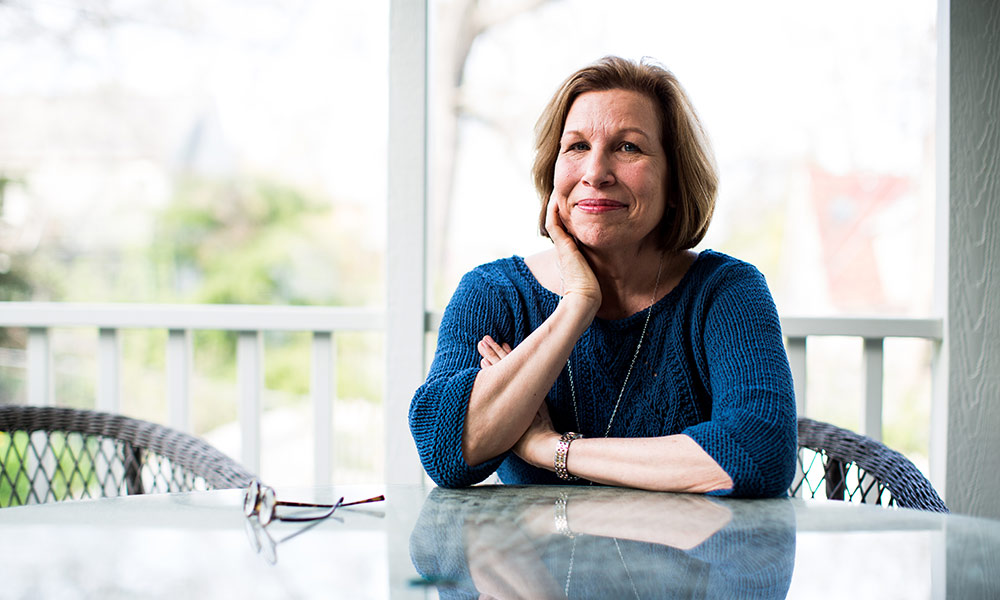The Verne Moore Lecture Series presents UW-Madison Professor Mary Louise Roberts
Mary Louise Roberts’ talk, “The Leroy Henry Case: Sexual Violence and Allied Relations in Great Britain, 1944,” takes place on Thursday, March 31, 2016, at 5 p.m. in the Hawkins-Carlson Room, Rush Rhees Library on the University’s River Campus. The event is free and open to the public.
 In May 1944, just days before the D-Day invasion, an African-American soldier, Leroy Henry, was accused of raping a British woman in Bath, a small city in southwest England. Before the case against Henry was resolved in an acquittal, it became an international cause célèbre and an embarrassing scandal for the U.S. military.
In May 1944, just days before the D-Day invasion, an African-American soldier, Leroy Henry, was accused of raping a British woman in Bath, a small city in southwest England. Before the case against Henry was resolved in an acquittal, it became an international cause célèbre and an embarrassing scandal for the U.S. military.
The British press first brought the case to light, attacking the U.S. military for a miscarriage of justice. British civilians in the Bath region then took up Henry’s cause, running a grassroots petition campaign, which produced 33,000 signatures for Henry’s reprieve. The international controversy reveals just how much race and sexuality were implicated in allied power relations, and was central to the conduct of the war in Western Europe, says Roberts.
The case then caught the attention of the NAACP in New York and drew in diplomats, army officers, government officials, and civilians and human rights activists on both sides of the Atlantic.
“I truly believe what we did there was amazing,” Roberts says of the American soldiers in Europe, “But I’m interested in providing a richer and more realistic picture.”
Roberts is the WARF Distinguished Lucie Aubrac Professor and Plaenert Bascom Professor of History at Wisconsin. Her latest book, What Soldiers Do: Sex, Power and American G.I.s in France, 1944-1946, won the American Historical Association’s Best Book in International History and the Gilbert Chinard Prize, Society for French Historical Studies and the Institut Français d’Amerique, 2014.
The lecture is part of the history department’s Verne Moore Lecture Series, an annual series that has been funded by a gift from University alumnus Verne Moore, Class of 1950, since 1996.




